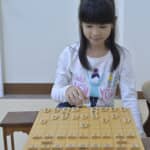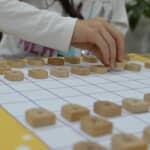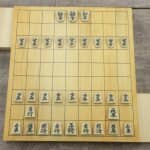Shogi 18 May 2017
Five Praise Points for Children Who Have Just Started Playing Shogi
When you raise your children, it is important that you praise them so that they can thrive on compliments. It is also the case with Shogi. (Personally, I also perform better with compliments!)
Since Shogi is a game to be finished with a clear result, winning or losing, we are likely to focus on the result of the game. As I mentioned several times in this i-tsu-tsu blog, children who have just started playing Shogi would find it difficult to keep playing the game until they decide a winner. If parents pay attention only to the game result, children would have fewer opportunities to be praised in Shogi.
Here are some points for which you could praise children, who have mastered the way to move each piece and the basic rules to play a game.
The most important thing is to look not at the result but at the process of the game. Shogi games will take a long time comprising the beginning, the middle, and the end of the game. It’s a good idea to set a goal for each step and praise children when they accomplish their goals, saying “Well done!”, or “Good job!”.
1. “Look at the board. How beautifully your pieces are placed!”
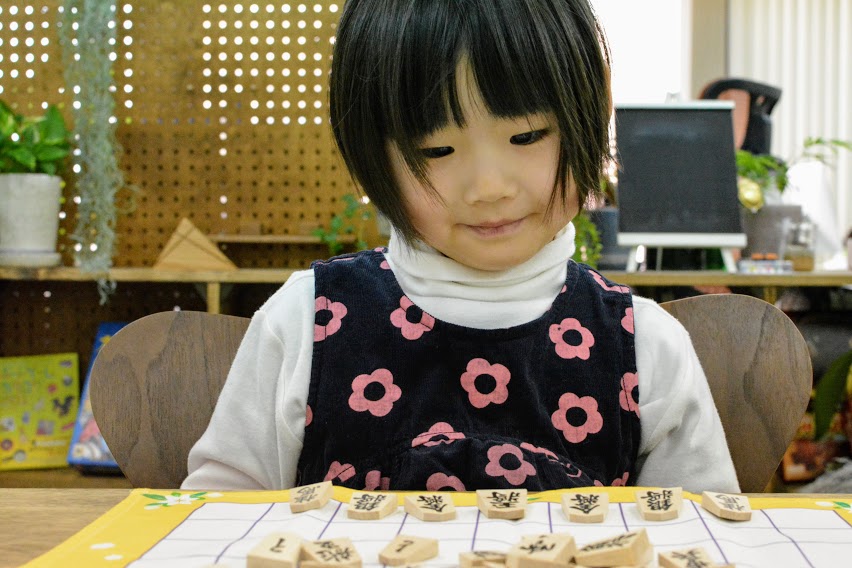
Except for special Shogi pieces designed for small children, common Shogi pieces, Fu (Pawn) in particular, are not handy for even adults (like me who has deft fingers!). If children could deal well with such pieces and set them, that means they practice Shogi daily. If so, please praise them, saying “You did very well”.
By the way, placing a piece in each square properly is regarded as a good manner of Shogi. Shogi is a game based on the complete disclosure of information. When it is difficult to see in which direction your pieces will move, or when your piece is placed on the line between squares, your opponent will have difficulty in getting the picture of whole pieces you placed. If each piece is placed in one square beautifully, in contrast, your opponent will immediately recognize what you have. Even you are a beginner player, you must be expected to play fair.
2. “Great! You took a piece!”
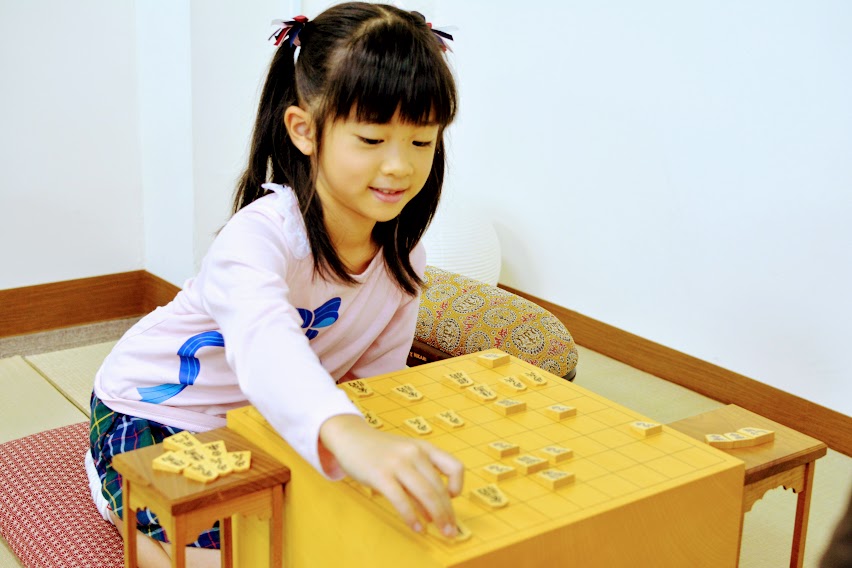
As I mentioned at the beginning of this article, there are three stages in a Shogi game, the beginning, the middle and the end. The beginning of the game is like a preparation period in which you may build a castle, or Kakoi in Japanese, preparing to attack your opponent base.
Then the middle of the game, which is the moment of opening a battle. This is also the moment that pieces will be exposed to a risk of being captured. Your child capturing a piece shows that he/she could have proceeded a game to the middle stage. The purpose of Shogi is not to collect opponent’s pieces but to check the opponent’s Gyoku (King). As you know, the more pieces you have captured, the more you can get the upper hand. Let’s give children a compliment, saying “You took a piece? That’s great!”
You may have two versions: “You took Fu (Pawn)? That’s great!” or “You took other than Fu (Pawn)? That’s impressive!” Since Shogi has the largest number of Fu (Pawn) pieces, they can be easily captured. Other pieces have to break a barrier made up of Fu (Pawn) pieces. So pieces other than Fu (Pawn) is more difficult to capture. Try to reflect it in your compliment.
3. “Woe! You made a piece promotion.”
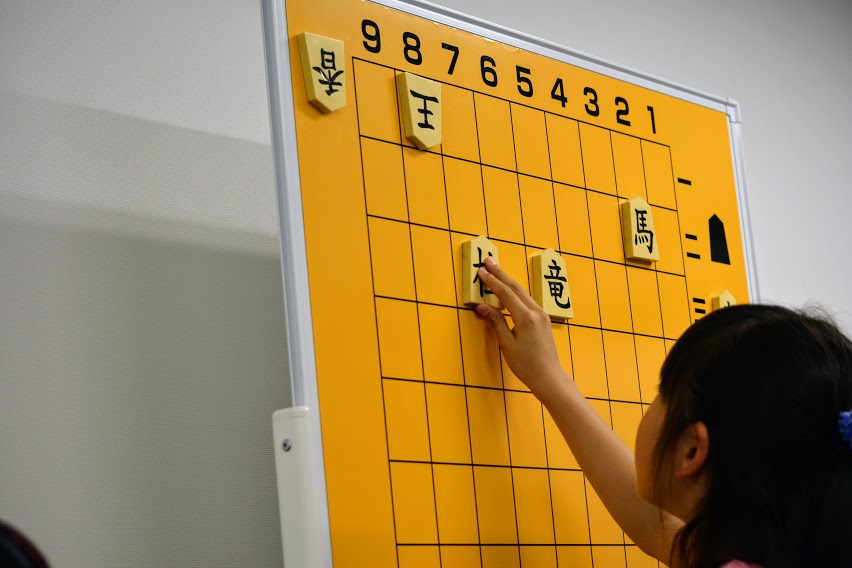
Shogi has a terminology, “Naru” or promotion, which means that any piece besides Gyoku (King) and Kin (Gold) can be promoted to gain more power when it moves into the opponent’s base: from the sixth row to the ninth row for the player who play first or from the first to the third for the second player.
A piece promotion can be a proof of children reaching to the opponent’s base.
During a Shogi game, you will feel unpleasant when your pieces are captured. Avoid getting captured, you can hardly move pieces forward bravely! A small child made it! What a great courage!
Please give a praise with your look of surprise for them promoting a piece and gaining a more powerful piece.
4. “You found a good way to give a check. Superb!”
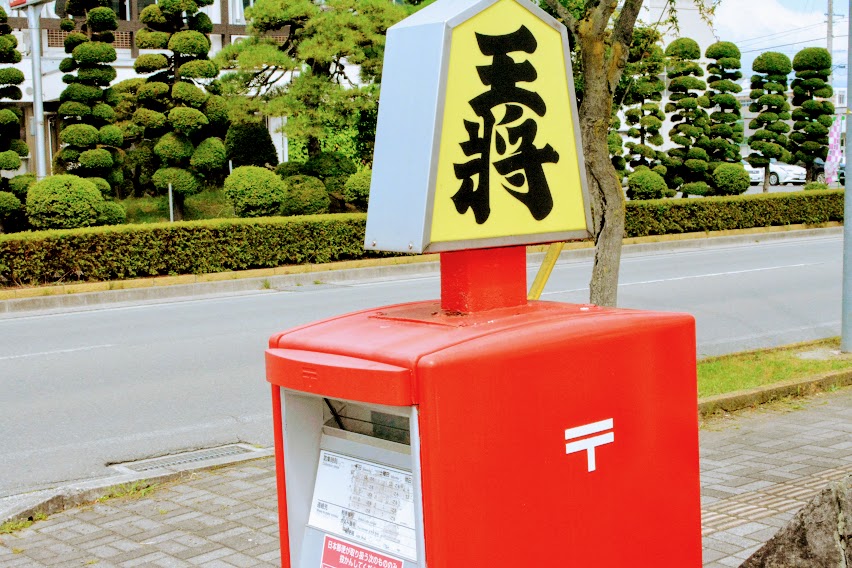
In the section #2, “Great! You took a piece!”, I talked about what is going on during the beginning and the middle of a game. “Giving a check” will happen in the end of a game. During the middle of the game when both players’ pieces face each other, you would focus on capturing your opponent’s pieces. Once you get in the end of the game, you recognize that the great need of deploying your hand pieces you captured during the middle game. Putting a captured piece back on a board might be difficult for small children who don’t get used to a Shogi game completely. They might feel unease to put it back more than to move their pieces forward bravely.
If children could “give a check” or “checkmate the opponent’s Gyoku”, I would say those would be the proofs telling that children overcame their uneasiness and put the right piece in the right square!
5. “Finally, you finished a game. I’m proud of you!”
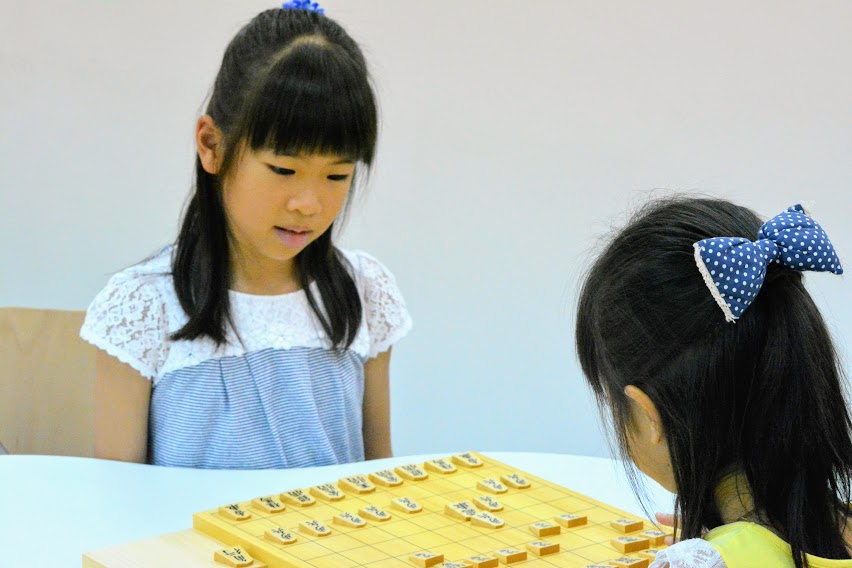
As I mentioned, a Shogi game takes a long time. Shogi players will have several difficulties during a game introduced in section #1 to #4, and they have to deal with those difficulties to end the game.
Whether children won or lost a game, please give them your appreciations for their efforts to face and work out several problems until the endgame. Tell them, “You made a game to the end. I am proud of you!”, with your big smile!
What did you think of today’s article?
For children, Mom and Daddy saying “Great job” is the most encouraging to become motivated than anything else, even more than winning a game.
If your children have just played Shogi, you may wonder if they would find Shogi fun or continue it. In such cases, I would recommend finding something to praise in them. That will work!
Did you get interested in Shogi? If so, our online shop is the right place for you!
